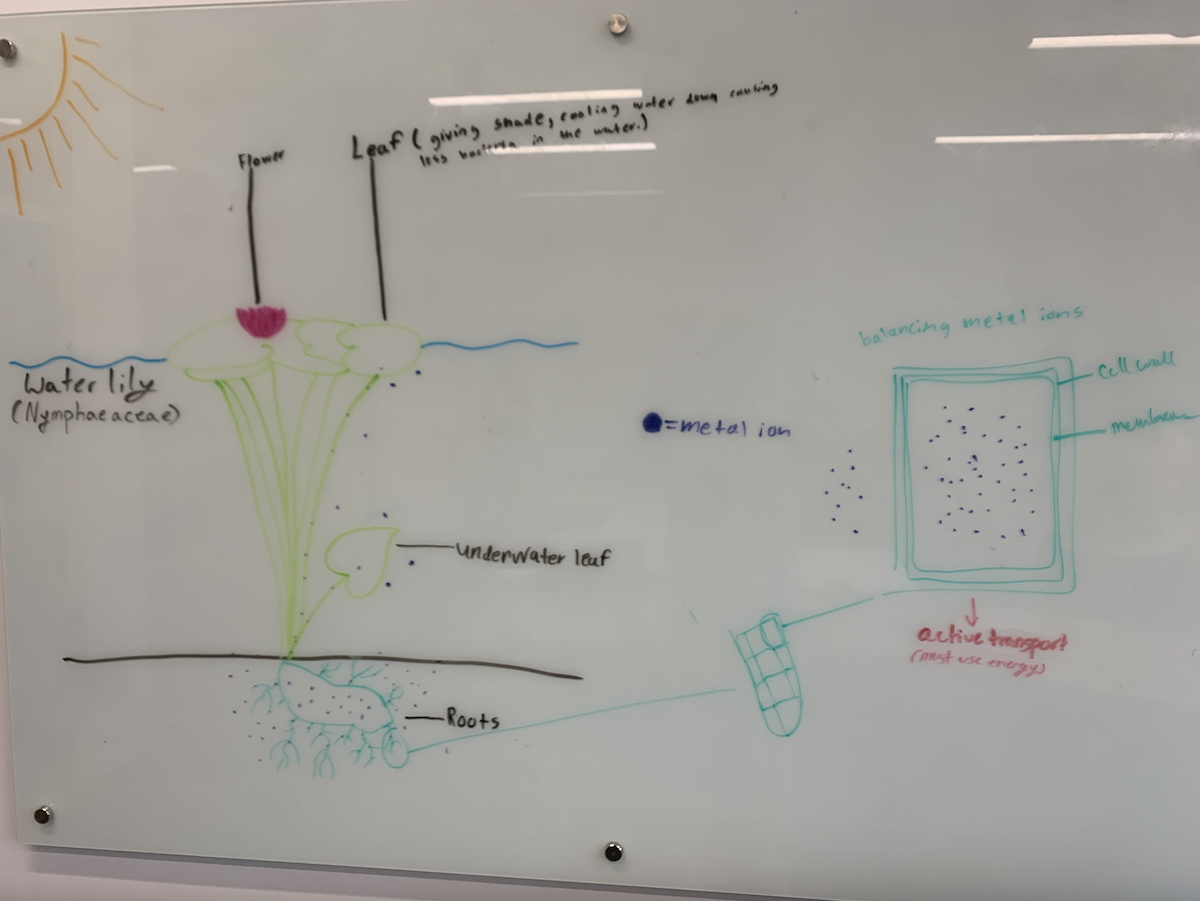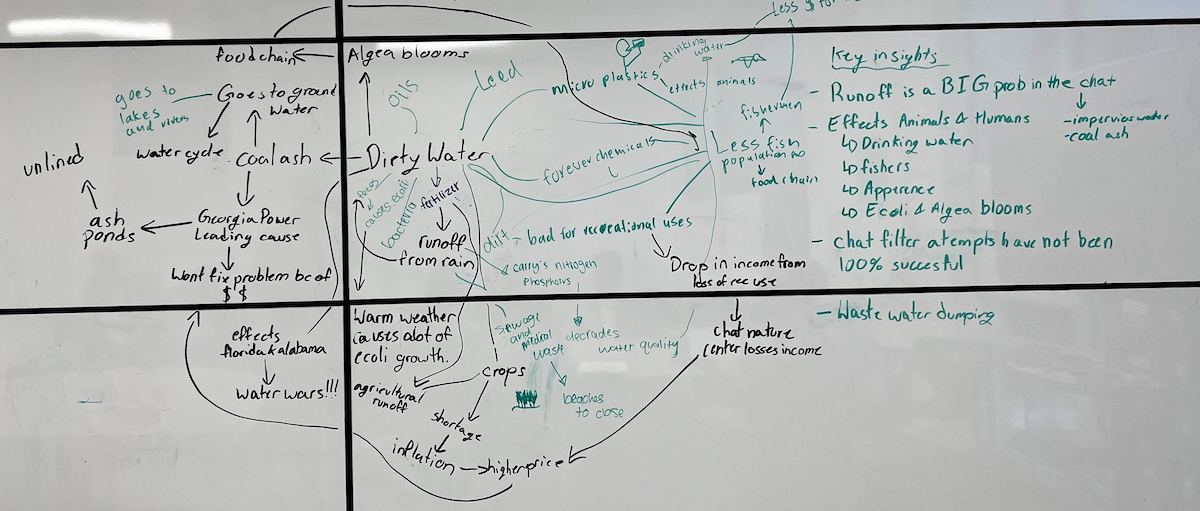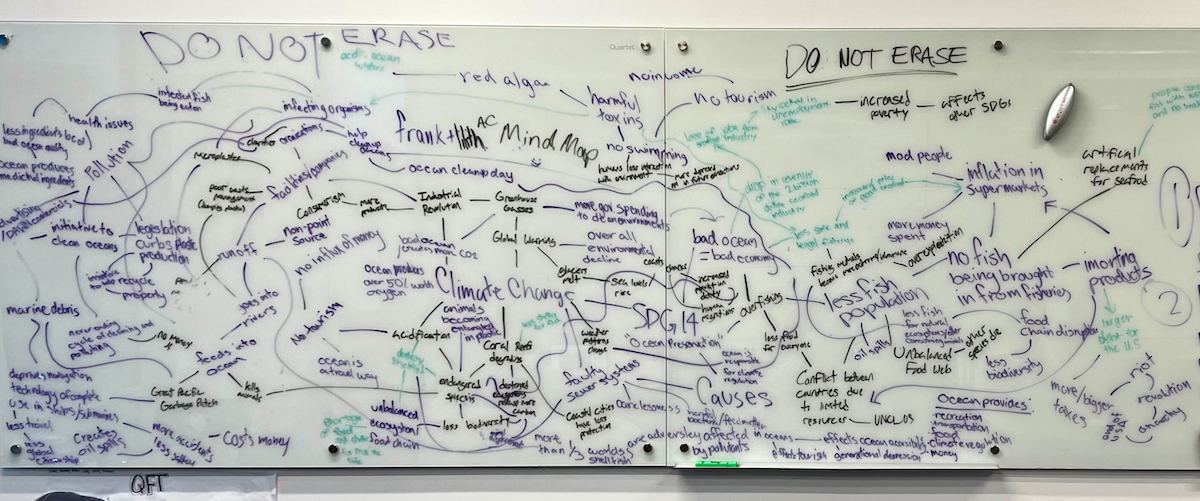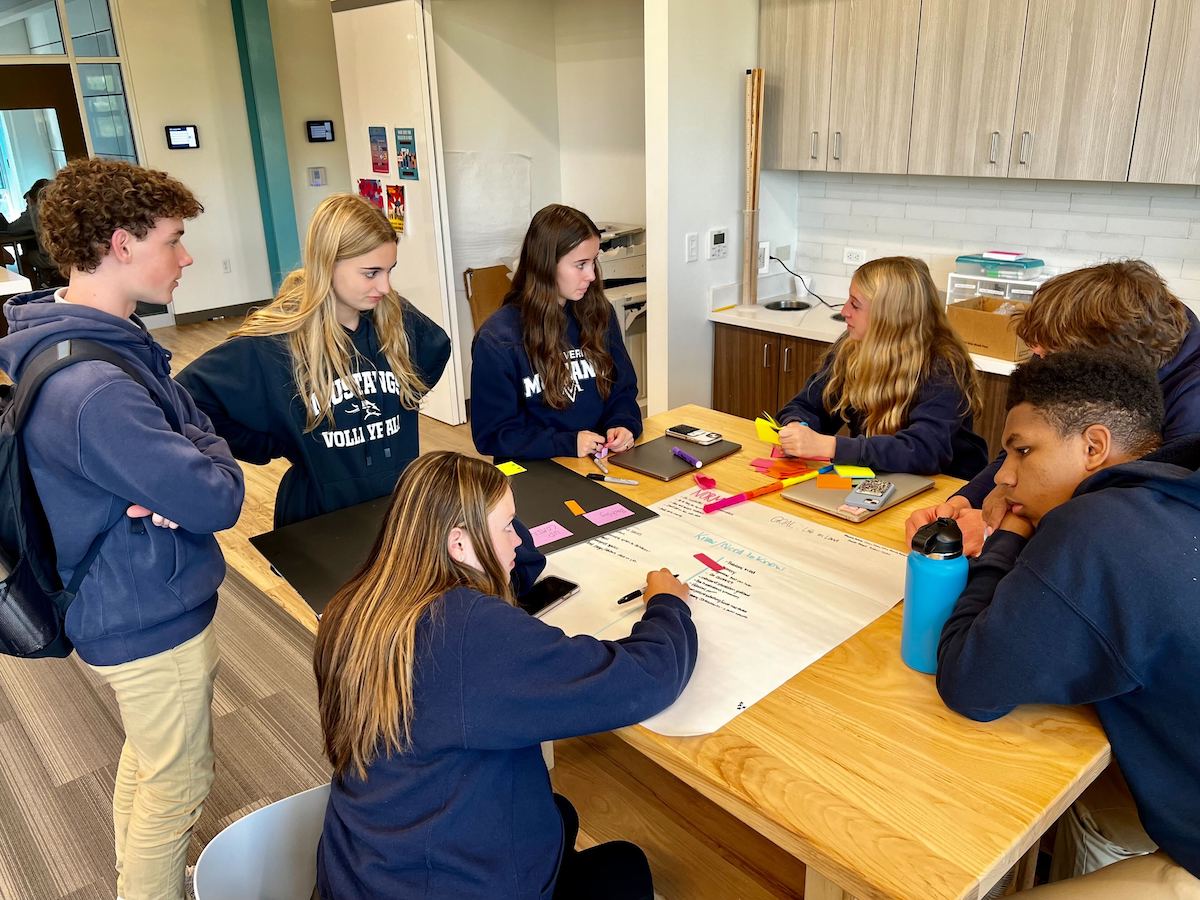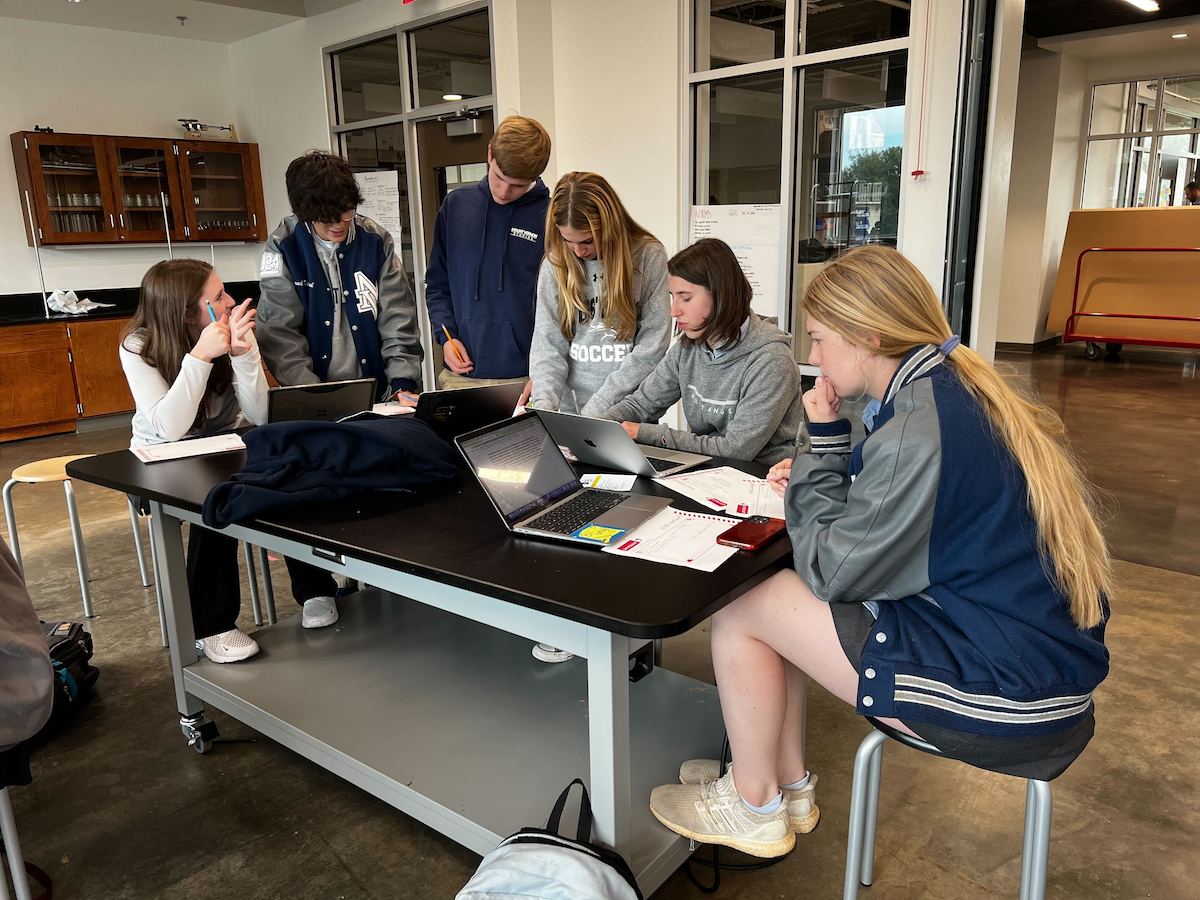Sophomores in Innovation Diploma Biomimicry Biology classes are participating in a global design challenge to find nature-inspired, eco-friendly, and sustainable solutions to address local or global ecological and environmental challenges. Each group will submit its findings to the Biomimicry Institute’s Youth Design Challenge program by the end of this week.
Each of the following questions is student created after researching problems either within our local Georgia community or worldwide.
- How might we design a water filtration device for Georgia Power to implement in the Chattahoochee River that filters out heavy metals and withstands temperature fluctuation, heavy water flow, and interaction with urban environments so that people can safely interact with the Chattahoochee?
- How might we protect the pine trees of private landowners from desiccation (the removal of moisture) by ensuring the soil can retain water in a self-sustaining way in extremely dry environments?
- How might we design living seawalls for Georgia’s coastal landowners that are cost-effective and easy to implement while using materials that can withstand turbulent underwater conditions and don’t harm the environment to protect the coastal ecosystems from erosion?
- How might we provide a solution for private landowners in the Blue Ridge Mountains that ensure the availability of a safe amount of aqueous calcium in the soil for vegetation that withstands varying temperatures, excess water, and droughts?
By using a method called “biologizing,”students ask the question “How might nature” followed by their driving question.
For example, Group 1 asks “How might nature filter heavy metals out of large quantities of water while also preserving the surrounding natural habitat?” This question drove students to research naturally occurring filtration methods in plant pieces. After studying five different species, they landed on the lilypad. “Lilypads naturally filter heavy metals through ions and cells through reverse osmosis and active transportation,” Georgia Wray Weseman explained. She and her group also spoke on the phone with different experts associated with Georgia Power. “When I called headquarters, they transferred me to one of their engineers. He told me that they had a 15-year plan to shut down many of their plants around the Chattahoochee river,” Aidan Pastush added. The group explained that even when these plants are shut down, their pollutants will still affect the river for decades to come. Therefore, more action is required to clean the metals from the area. They will submit a plan to the Biomimicry Institute to plant lilypads throughout the Chattahoochee river to combat this pollution.
Group 2 knew they wanted to study how to battle the results of climate change. They found a link between climate change and lack of water retention in soil resulting in deforestation via Beatles who seek out dehydrated dying trees. “How might nature help soil retain water in extremely dry environments?” The group discovered hydrogel, a gel-like substance that wraps around tree roots to collect water to distribute around the root system. And they identified Leaf Hair Points, an element on certain types of moss. Lex Welin explained, “The hairs expand to create more surface area for water collection, and when the moss has enough water, the hairs contract to save the water it has collected. Our plan is twofold. We will propose to make a synthetic version of both of those items for private landowners to purchase for their own plants.”
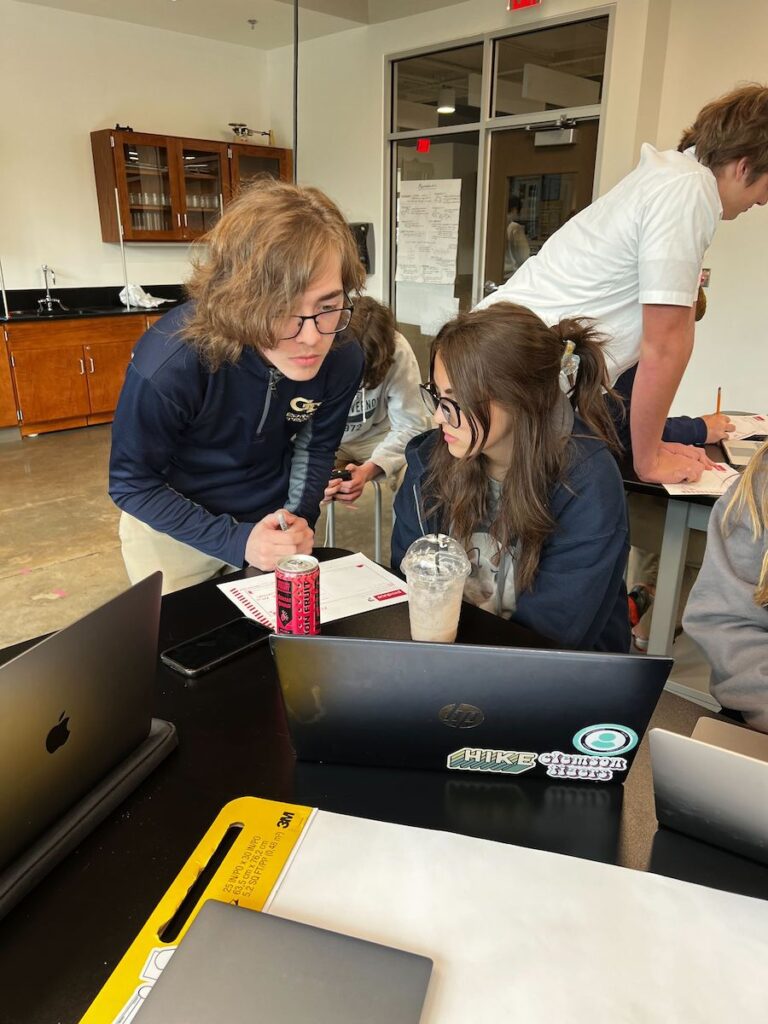
After studying the current coastal seawall solutions, Group 3 realized that it is doing more harm than good. Currently, large concrete structures called bulkheads are scattered across the seawall. These are designed to stop waves from crashing against the already fragile sea environment. But these structures disburse debris which destroys the surrounding habitat resulting in a reduction of biodiversity. This group set out to find an eco-friendly and sustainable solution by researching sea creatures that perform the same function as seawalls. “Oyster reefs do much of the same stabilization as a seawall does. But we found out that there is already a big push to save the oyster population and find out how they can help with erosion. So we did more research to see if there was any other life that could help,” Herris Fentress explained. The group contacted MVXperts, Christy Lamper and Paige Martin. These scientists work together at The Nature Conservancy. They explained what has worked and what hasn’t worked in the past, outlining the drawbacks to the best solutions the scientific community has implemented. With their support, students went back to the drawing board to design another solution. Frankie Whelan explained “We finally came up with installing a honeycomb-like structure with mangroves lining the inside. This structure will distribute the force from the waves while serving as a home for a large range of fish increasing the biodiversity of seawall areas.”
Group 4 took an interest in helping the flora thrive in Georgia’s Blue Ridge Mountains. “Air pollution, caused by surrounding emissions, produces acidic rain due to sulfur and nitrogen oxides emitted into the atmosphere. Because acidic rain alters vegetation by depriving the soil of calcium and releasing toxic aluminum to plants and other organisms, the biodiversity in the Blue Ridge mountains is decreasing,” Maggie McKenzie explained. With these guiding questions, “How might nature protect itself from non-living threats such as chemicals?” and “How does nature store chemicals such as calcium, an essential growth agent for forests,” students identified English Ivy. Maggie added, “The wax on English Ivy takes in a certain amount of essential chemicals and disburses them through their root system to other plants in the area. We decided to continue our research to see how to mimic this action to disburse calcium. Since this solution is for private land owners who want to preserve their surrounding areas, we have started to design a sprinkler-like product that can disburse the correct amount of calcium so that surrounding plants and trees will receive just enough and surrounding areas will not receive too much.”
Throughout their research and design process, these groups are iterating and reiterating new designs and ideas to submit a final solution package to the Biomimicry Institute’s Youth Design Challenge. Within this submission, students are required to include 4 separate items:
- three overview questions
- a project process portfolio slide deck
- an image of the final model/prototype
- and a team photo.
The Biomimicry Institute will receive hundreds of these submissions between now and January 1, 2023. Come May 28, 2023, the institute will select first, second, and third-place winners in National and International categories. The winning teams will have their work featured on the Biomimicry Institute’s website.
Larisa Pender-Healy, Innovation Diploma Biology – Biomimicry Teacher has facilitated this activity in previous teaching positions. She explained that “this is the third class that has taken this challenge on but the first year we will actually submit. I feel confident that this group of iD students is the best equipped to tackle this challenge because of their strong background in design work and fearless approach to all things they do.”
